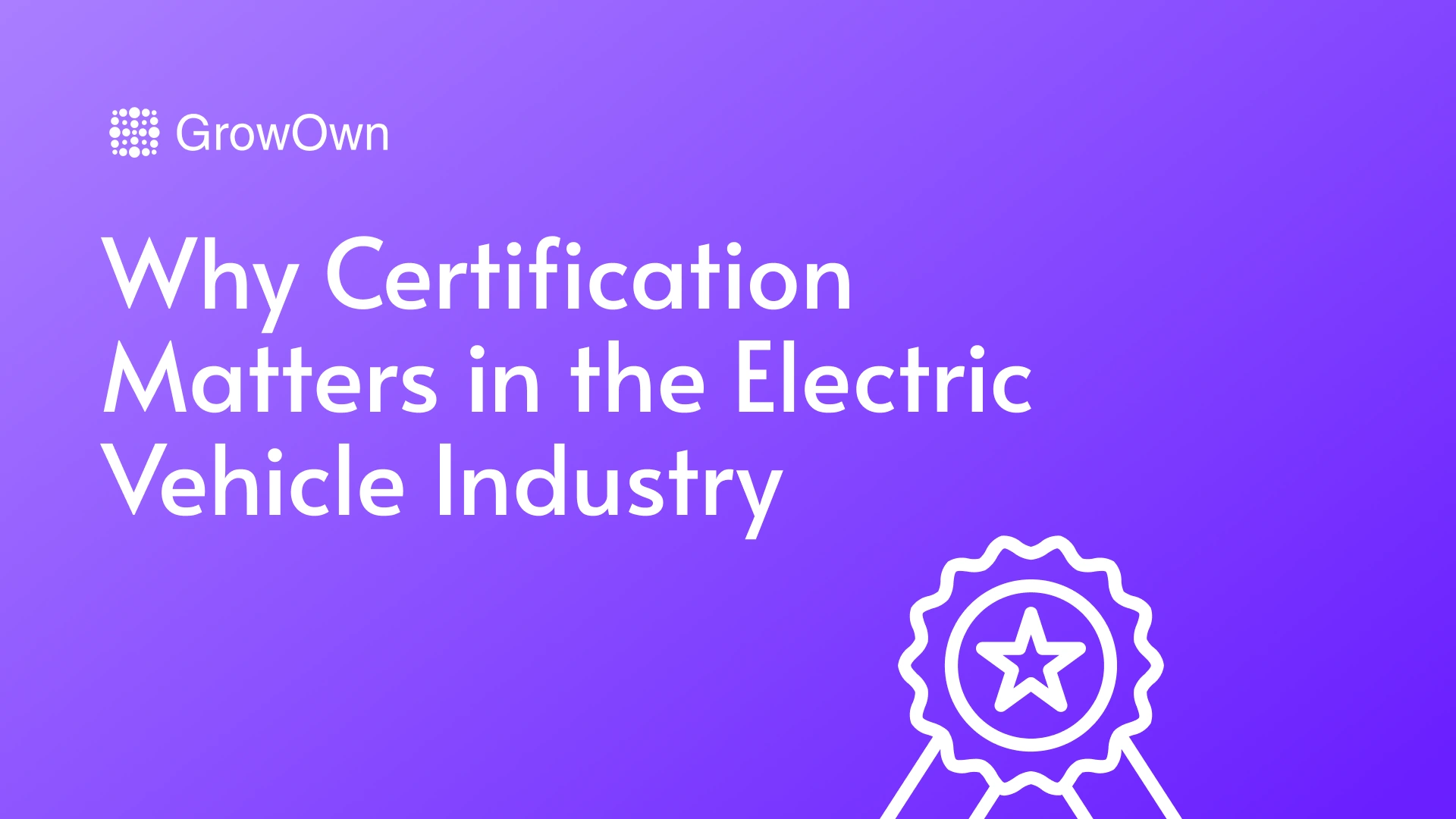As the electric vehicle (EV) industry continues its rapid expansion, skilled professionals are becoming the backbone of this transformative movement. Whether you’re a technician, engineer, or enthusiast aiming to make a mark, certification in EV technology is no longer just an added advantage—it’s a necessity. But why does certification hold such significance in the electric vehicle industry? Let’s dive into the critical reasons and benefits that make certification a key ingredient for success in this fast-paced sector.
1. Bridging the Skills Gap in a Booming Industry
The global EV market is projected to surpass $800 billion by 2030, with India alone aiming for a $7.09 billion market by 2025. Despite this growth, a glaring skills gap persists. Companies are struggling to find professionals with hands-on expertise and updated knowledge in EV technology. Certification programs are designed to bridge this gap by equipping individuals with the practical and theoretical skills needed to thrive in the industry.
Certified training provides:
- Comprehensive knowledge of EV systems, including batteries, motors, and controllers.
- Troubleshooting techniques to handle real-world challenges.
- A competitive edge in a talent-short market.
2. Industry-Recognized Credentials Boost Career Opportunities
In a field as dynamic as EVs, credibility matters. Employers prioritize candidates who have verifiable proof of their expertise. Certification serves as an industry-recognized credential that validates your proficiency in EV technology. It acts as a trust signal, showcasing your commitment to professional development.
Key Benefits:
- Enhanced resume appeal: A certification makes you stand out among applicants.
- Recognition from top EV companies: Certified professionals are often shortlisted for prestigious roles.
- Opportunities for career advancement: Certification paves the way for higher-level positions and leadership roles.
3. Staying Updated in a Rapidly Evolving Industry
EV technology is advancing at breakneck speed. From solid-state batteries to autonomous electric vehicles, the landscape changes almost every year. Certification programs are regularly updated to include the latest industry trends and innovations, ensuring that professionals remain relevant and competitive.
What you learn:
- Cutting-edge advancements in EV battery technology.
- Emerging trends like vehicle-to-grid (V2G) systems and wireless charging.
- Compliance with evolving safety standards and regulations.
By staying ahead of these changes, certified professionals become invaluable assets to their organizations.
4. Building Confidence Through Hands-On Training
Theoretical knowledge alone isn’t enough in the EV sector. Employers demand hands-on experience with real-world systems. Certification programs often emphasize practical training, allowing participants to:
- Work with actual EV components, including batteries, motors, and powertrains.
- Practice diagnostics, troubleshooting, and repairs.
- Gain confidence to tackle challenges on the job.
Programs that combine theory with hands-on workshops ensure that participants graduate with job-ready skills—a vital trait in a high-stakes industry.
5. Meeting Legal and Safety Standards
The EV industry is governed by strict safety regulations and compliance standards to ensure the safe operation of vehicles and charging infrastructure. Certification programs teach participants these critical safety protocols, including:
- Proper handling of high-voltage systems.
- Maintenance and disposal of EV batteries.
- Adherence to national and international safety codes.
Certified technicians are not only better equipped to perform their roles safely but are also more trusted by employers and customers alike.
6. Increasing Earning Potential
The financial benefits of certification are significant. Certified professionals typically earn higher salaries compared to their non-certified peers. As companies place a premium on expertise and reliability, they are willing to invest more in certified talent.
Statistics to consider:
- Certified technicians can earn 20-30% more than their uncertified counterparts.
- Certification often leads to faster promotions and access to specialized roles, such as EV system designers or advanced diagnostics experts.
7. Gaining Access to a Global Network
The EV industry is a global phenomenon, and certification programs often connect participants with a network of industry professionals, trainers, and alumni. This network can be instrumental in:
- Finding job opportunities across the globe.
- Collaborating with peers on innovative projects.
- Staying informed about industry developments and career prospects.
8. Unlocking Placement Support
Many certification programs offer dedicated placement support, bridging the gap between training and employment. Placement services often include:
- Resume building and interview preparation.
- Networking with hiring managers from top EV companies.
- Direct job placements for top-performing candidates.
These services ensure that participants transition smoothly into the workforce, leveraging their certification for immediate career benefits.
9. Empowering Entrepreneurs
Certification is not just for job seekers. Aspiring entrepreneurs looking to enter the EV sector—whether in manufacturing, repair, or charging solutions—can benefit immensely from the technical expertise and industry insights provided by certification programs. It equips them with the knowledge to:
- Launch their own EV-related businesses.
- Navigate regulatory requirements with ease.
- Build credibility and trust with customers and investors.
10. Shaping a Sustainable Future
The EV industry is at the forefront of combating climate change and reducing carbon emissions. By becoming a certified EV professional, you contribute to a greener, more sustainable future. Certification programs emphasize eco-friendly practices, ensuring that participants not only excel in their careers but also make a positive environmental impact.
Examples of sustainable practices taught:
- Efficient energy management in EV systems.
- Recycling and repurposing EV batteries.
- Promoting renewable energy integration with EV infrastructure.
Final Thoughts: Certification as a Career Catalyst
The electric vehicle industry is more than just a career choice; it’s an opportunity to be part of a global movement reshaping transportation and sustainability. Certification acts as a catalyst, empowering professionals to seize opportunities, build expertise, and achieve long-term success.
Whether you’re an aspiring technician, an established professional, or an entrepreneur, investing in an EV certification program is an investment in your future. It’s your ticket to standing out in a competitive industry, mastering cutting-edge technology, and playing a pivotal role in the world’s transition to sustainable mobility.
Are you ready to take the first step? Enroll in an EV certification program today and accelerate your journey to success!
